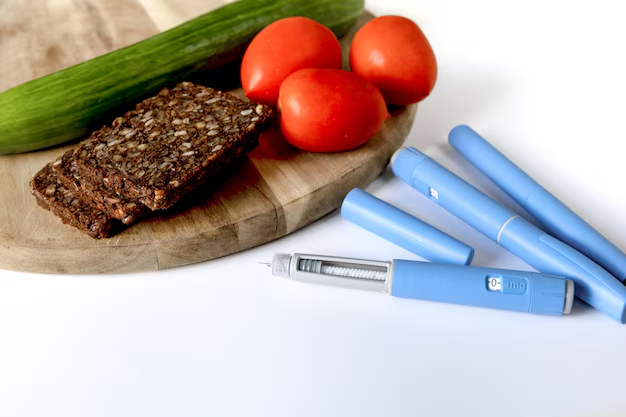Your Guide to How Many Carbs Should Diabetics Eat a Day
What You Get:
Free Guide
Free, helpful information about Diabetes FAQ and related How Many Carbs Should Diabetics Eat a Day topics.
Helpful Information
Get clear and easy-to-understand details about How Many Carbs Should Diabetics Eat a Day topics and resources.
Personalized Offers
Answer a few optional questions to receive offers or information related to Diabetes FAQ. The survey is optional and not required to access your free guide.
How Many Carbs Should You Eat If You Have Diabetes?
Managing diabetes effectively often centers around understanding and controlling carbohydrate intake. Carbohydrates, after all, have the most significant impact on blood glucose levels. However, the question of exactly how many carbs a diabetic should eat daily is not always straightforward, as it depends on various individual factors. Let's delve into the details.
Understanding Carbohydrates and Diabetes
Carbohydrates are an essential energy source found in foods such as grains, fruits, vegetables, milk products, and sweets. When consumed, they break down into glucose, which is used as fuel by the body. For diabetics, controlling blood glucose levels is critical, and this means paying close attention to carb intake.
Recommended Carb Intake
For diabetics, the daily intake of carbohydrates will vary depending on several essential factors:
- Current weight and goals: Whether you're maintaining, losing, or gaining weight can change your necessary carb intake.
- Physical activity level: More active individuals may require more carbs.
- Medication regimen: Insulin and other diabetes medications can influence how carbs need to be managed.
Most healthcare guidelines suggest diabetics start by consuming about 45-60 grams of carbs per meal. This range provides a good baseline for planning meals, but it’s crucial to tailor this to individual health needs. Some might find they need fewer carbs, while others might require more. Consulting a healthcare provider or a registered dietitian can offer personalized guidance.
Monitoring and Adjustment
The key to successful diabetes management involves anyone:
- Monitoring blood sugar levels regularly: This helps understand how different carbohydrate amounts and types affect you.
- Keeping a food diary: Tracking what you eat and your blood sugar levels can unveil patterns and help with adjustments.
- Adapting to feedback: Fine-tuning your carb intake based on your body's responses is essential.
Smart Carb Choices
Not all carbs are created equal. While the quantity is important, the quality of carbs matters greatly:
- Focus on high-fiber options: Whole grains, legumes, fruits, and vegetables can have a gentler impact on blood sugar levels.
- Limit refined and sugary foods: These can spike blood glucose levels and offer less nutritional value.
- Balance meals with protein and fats: It helps slow glucose absorption, providing a more stable blood glucose level.
Beyond Carbohydrates: Exploring Financial Avenues
Living with diabetes isn't just about managing diet. It often involves dealing with medical expenses that can be burdensome. Thankfully, there are various programs and options to consider:
- Health insurance subsidies: Explore government programs that can assist with obtaining affordable health insurance.
- Medicare and Medicaid: For those eligible, these programs can significantly reduce the cost of care and medications.
- Debt relief services: If medical bills are overwhelming, consider debt relief solutions to consolidate and minimize debt.
Tapping into these resources could alleviate some of the financial stress associated with diabetes, allowing for better focus on health management.
Quick Guide to Financial Assistance
Here are some avenues to explore for financial support and educational opportunities:
- 🏥 Medicaid and Medicare Assistance Programs: Check eligibility for coverage that can assist with healthcare expenses.
- 📚 Educational Grants: Investigate scholarships and grants for those pursuing education related to healthcare fields.
- 💰 Debt Relief Options: Look into organizations that offer debt consolidation or financial counseling specifically geared toward medical debt.
- 🏛️ Government Aid Programs: Programs like SNAP (Supplemental Nutrition Assistance Program) can help with purchasing healthy foods.
Being well-informed about diet and financial resources can significantly support diabetes management, helping maintain a healthy lifestyle without unnecessary stress.
What You Get:
Free Diabetes FAQ Guide
Free, helpful information about How Many Carbs Should Diabetics Eat a Day and related resources.

Helpful Information
Get clear, easy-to-understand details about How Many Carbs Should Diabetics Eat a Day topics.

Optional Personalized Offers
Answer a few optional questions to see offers or information related to Diabetes FAQ. Participation is not required to get your free guide.


